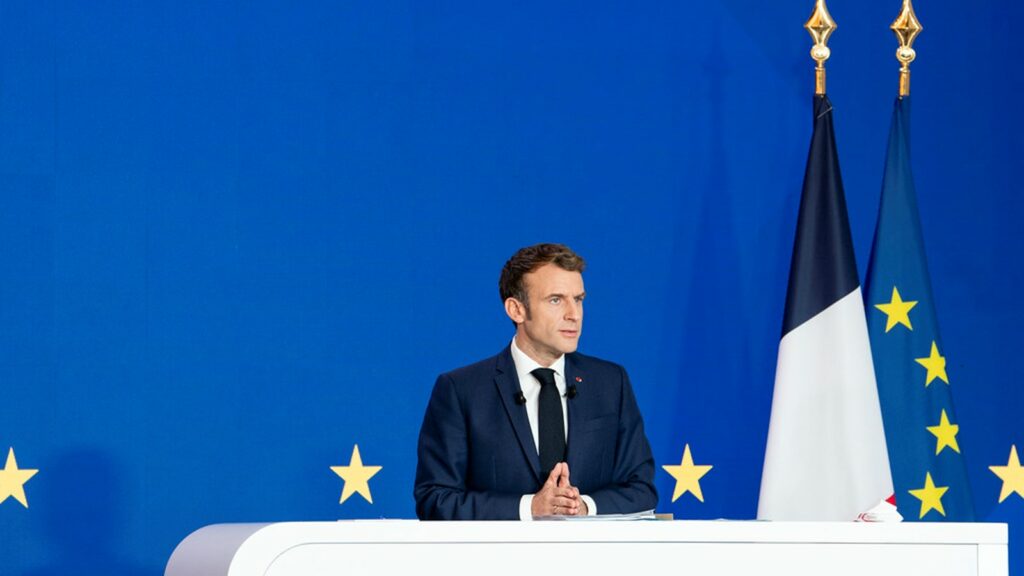France intends to take advantage of the rotating presidency of the EU to push forward the issues that are close to its heart. First and foremost, is the matter of European defence, made all the more pertinent following the loss of the $66 billion AUKUS submarine contract.
More generally, Emmanuel Macron intends to position himself on a platform of European sovereignty, both on traditionally sovereign issues and on economic ones as well. Fortunately for the audacious Frenchman, the stars seem to be lining up with his strategic ambitions.
Germany’s new chancellor has already signalled a departure from the long reign of his predecessor’s stoic posture. Issues ranging regional security to the misdemeanours of member states seem to have found themselves on the table once more.
For his part, Josep Borrell, the EU’s number one on foreign policy, has also thrown down the gauntlet, arranging a major discussion in March around the “Security Compass.”
A litany of disturbances to the status quo, from the Russia-Ukraine war to Chinese ballistic missile testing, to the shock US withdrawal from Afghanistan — has brought the question to the front of the Europeans consciousness: how ready does the EU want to be if conflict emerges?
Taking the reins over the EU council for the next 6 months, Macron is well-positioned for an all-or-nothing push toward European strategic autonomy. As is characteristic, his plans do not lack ambition.
"I would say that we must move from a Europe of cooperation within our borders to a Europe that is powerful in the world, fully sovereign, free in its choices and master of its destiny," he said during a news conference in December.
Rousing the sleeping giant
But what hurdles does Macron’s regal project need to overcome?
Distance and apparent lack of transparency have at times alienated European voters, who understandably feel less of a tangible link to EU politics than to their national elections. This might appear to be a trivial point, but in fact creates clear differences in how citizens relate to European as opposed to national institutions. The EU’s many-layered governance also creates certain unique challenges — minor controversies around the European Defence Fund (EDF) are a good example of this.
“The lack of a common interpretation on arms exports rules across the union, and limited substantial mechanisms to monitor the export to third countries of military equipment developed with EDF funding, are areas of especial concern," according to Raluca Csernatoni, a visiting scholar with the thinktank Carnegie Europe.
This is a weakness in hearts-and-minds that potentially hinders the concrete development of European sovereignty. Indeed, minor differences in legal definitions within different members states, or merely differences in accepted language — sow discord.
For the sovereign giant to wake, it must develop certainty and clear identity in leadership.
Coherence on sovereignty
Not only does European sovereignty lack clarity at the top, it also suffers from disengaged applications in how the EU pursues its interests. A high tolerance for risk over strategic energy supplies from, for example, Russia is one potential weakness. This has been highlighted by the ongoing deliberations over Nord Stream 2.
So too, is the approach often taken in outsourcing important projects to private contractors. The EU has a number of highly sensitive security concerns, the Polish-Belarussian border, Libya, Ukraine — that are all too often handled with little strategic autonomy.
For instance, in certain EU funded support missions, contracts have gone to private military operators from outside the EU. This can be problematic, with foreign operators being misaligned with EU standards and records, for instance, on human rights — which are the most rigorous of their kind in the world.
“The EU is always talking about values like human rights, [speaking out] against violations but … week-by-week we see more people dying and we have to question if the EU is breaking its values,” said German MEP Özlem Demirel.
Another side of the problem, beyond human rights concerns, is that any reliance on the services of companies from non-member states creates reliance on forces outside the EU’s control.
In 2007 and 2008, the EU hired the UK-based company Armor Group to provide hostile environment training for ‘European Union Police mission in Afghanistan’ staff. It also contracted the UK-based Hart Security to secure mission headquarters in Kabul. These kinds of contracts frequently go to companies outside the union, even to companies in North America. With the UK no longer a member state, the emphasis might need to shift.
Other major powers make every attempt to have the different boughs of their soft and hard power working together.
It would be, for example, unimaginable for China to hire foreign private military contractors to oversee projects of national importance. Likewise, the idea of Russia outsourcing to companies from nations outside of its influence is implausible.
As Josep Borell highlighted, along with other veteran political figures, the game has changed – the world is far more strategically competitive than in recent decades. NATO’s necessary strategic reassessment in June this year will include a widening of scope into non-security domains, and this is further evidence of a global shift.
Given the direction in which the world is moving, the use of member-state companies, especially on sensitive contracts like energy and security, is but one more strategic imperative.
Holding too closely to old notions of a loose and open European market could be a path to incoherence. With the boundaries between conflict and competition breaking down, a unified EU policy on sovereign issues is likely essential. The EU’s transition from an economic bloc towards a unified, modern political entity is not wholly complete. For it to be so, requires agreement on which domains should be considered sovereign concerns by the union’s members.
There is opportunity in 2022 for enormous change in Europe. Though anathema to some, the idea of a federalised EU is no longer inconceivable. Already, there are discussions planned in EU institutions on the subject of moving from a unanimous to a majority member voting system on strategic issues. Such concepts face uphill struggles, but the fact they are on the table is significant in and of itself.
There is also a sudden clamour by certain politicians for an EU defensive force — a motion that will make boiling polemics around Frontex, the EU border security force, appear level-headed.
All of this, and none of this, are what could be awaiting Emanuel Macron, should he, as is expected, secure his place as president of the French republic once more. Integration or disillusionment — only time will tell.


